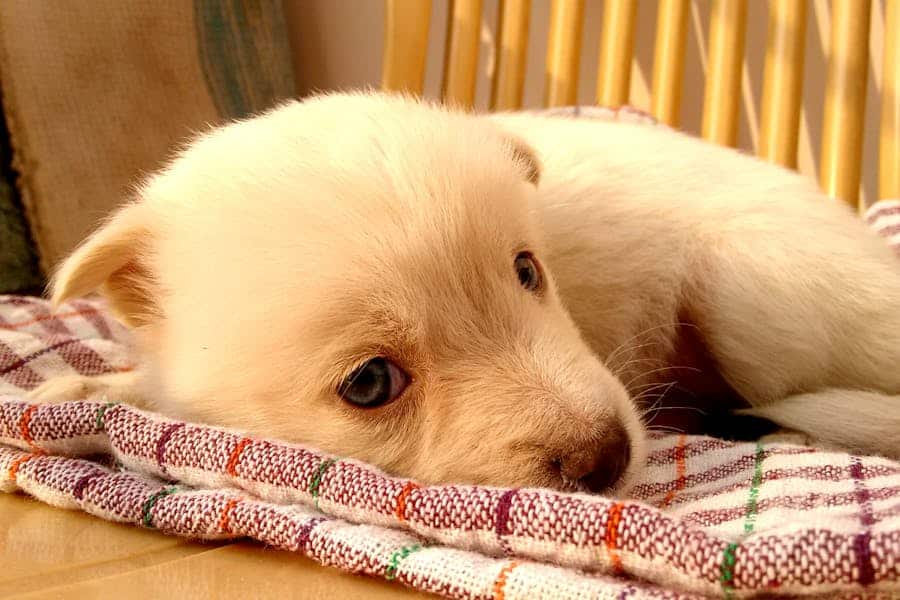Pomskies can eat a variety of food, including high-quality animal-based protein sources like beef, chicken, turkey, lamb, duck, eggs, and fish. It is important to choose a diet that meets their nutritional requirements and includes a balance of nutrients such as protein and fat.
Additionally, some pet owners may also feed their Pomskies rice or include grain-inclusive foods in their diet. However, it is crucial to avoid giving them cow’s milk as it can cause diarrhea and stomach upset. Remember to consult with your veterinarian to determine the best diet for your Pomsky’s specific needs.
Dietary Requirements
Pomskies are energetic and active dogs, and their diet plays a crucial role in their overall health and well-being. Understanding their dietary requirements is essential to ensure they receive the necessary nutrients for their growth and vitality.
Protein For Energy And Muscle Development
Pomskies require a significant amount of protein to sustain their high energy levels and support healthy muscle development. It is vital to include high-quality sources of protein in their diet to meet these needs. Some recommended protein sources include:
- Chicken
- Turkey
- Beef
- Fish
Importance Of A Balanced Diet
A balanced diet is crucial for Pomskies to ensure they receive all the necessary nutrients. It is essential to provide a variety of essential vitamins and minerals to support their overall health and well-being.
Recommended Sources Of Fat
Fat is an important component of a Pomsky’s diet, providing them with essential fatty acids and energy. Including healthy fats such as fish oil, coconut oil, and flaxseed oil can help maintain a healthy skin and coat in Pomskies.
Essential Carbohydrates For Pomskies
While protein and fat are essential, carbohydrates also play a role in providing energy to Pomskies. However, it’s important to choose high-quality sources of carbohydrates such as brown rice and sweet potatoes to ensure they receive the necessary fiber and nutrients.
What Not To Feed
Feeding your Pomsky the right food is essential to ensure their health and well-being. While there are many foods that are safe and beneficial for Pomskies, there are also certain foods that you should avoid giving them. It’s important to be aware of these foods to prevent any potential harm or allergies. Here are the foods harmful to Pomskies and potential allergens that you should keep away from your furry friend.
Foods Harmful To Pomskies
There are certain foods that can be toxic and even fatal to Pomskies. As a responsible pet owner, it’s crucial to be aware of these foods and make sure they’re kept out of your Pomsky’s reach. Here is a list of foods that you should never feed your Pomsky:
- Chocolate: Chocolate contains theobromine, which is toxic to dogs and can cause symptoms like vomiting, diarrhea, and even seizures.
- Grapes and raisins: Grapes and raisins can cause kidney failure in dogs, so it’s important to avoid feeding them to your Pomsky.
- Onions and garlic: Onions and garlic contain a compound called thiosulfate, which can damage a dog’s red blood cells and lead to anemia.
- Avocado: Avocados contain persin, a toxin that can cause vomiting, diarrhea, and breathing difficulties in dogs.
- Caffeine: Caffeine can be extremely dangerous for dogs and can lead to rapid breathing, heart palpitations, and even death.
- Xylitol: Xylitol is a sugar substitute commonly found in gum, candy, and baked goods. It can cause a sudden release of insulin in dogs and lead to life-threatening hypoglycemia.
Potential Allergens For Pomskies
Just like humans, dogs can have food allergies or sensitivities. While these allergies can vary from dog to dog, there are certain foods that are more likely to cause allergic reactions in Pomskies. Here are some potential allergens that you should be cautious about when feeding your Pomsky:
- Grains: Some dogs are allergic to grains like wheat, corn, and soy. If you suspect your Pomsky has a grain allergy, it’s best to opt for grain-free dog food.
- Dairy products: While some dogs can tolerate dairy, others may be lactose intolerant. It’s important to monitor your Pomsky for any signs of digestive upset after consuming dairy products.
- Beef and chicken: Although beef and chicken are common protein sources in dog food, some Pomskies may develop allergies to these meats. If you notice any symptoms like itching, rashes, or gastrointestinal issues, consider switching to alternative protein sources like fish or lamb.
Remember, every dog is unique, and what may be harmful or allergenic to one Pomsky may not affect another. It’s always a good idea to consult with your veterinarian before making any changes to your Pomsky’s diet or introducing new foods. By being cautious and attentive to their nutritional needs, you can ensure your Pomsky stays healthy and happy.
Meal Planning
Pomskies have specific dietary needs that should consist of high-quality animal-based protein sources such as beef, chicken, turkey, lamb, duck, eggs, and fish. It is best to avoid grain-inclusive foods and opt for a diet that is easily digestible and low in fiber.
Additionally, incorporating puzzle toys can make mealtime more engaging for your Pomsky.
Creating A Well-rounded Meal Plan
Ensure variety in Pomskies’ diet with a mix of proteins, carbs, and healthy fats to meet their nutritional needs.
Include high-quality animal-based proteins like beef, chicken, and fish to support muscle growth and overall health.
Fresh fruits and vegetables can provide essential vitamins and antioxidants for a balanced diet.
Understanding Portion Control
- Monitor portion sizes based on your Pomsky’s size and activity level to prevent overfeeding.
- Consult with a veterinarian to determine the right portion for your Pomsky’s specific needs.
- Avoid feeding table scraps as they can lead to weight gain and digestive issues.
Special Dietary Considerations
Pomskies, being a mix of Pomeranians and Siberian Huskies, have unique dietary needs that require particular attention. To ensure their optimal health, it is important to consider special dietary requirements such as a raw food diet and the incorporation of supplements into their meals.
Raw Food Diet For Pomskies
A raw food diet is often recommended for Pomskies, as it closely mimics the natural diet of their wild counterparts. This diet primarily consists of raw meat, bones, organs, and occasionally fruits and vegetables. It is crucial to ensure that the raw food is balanced and complete to provide the necessary nutrients for your Pomsky’s wellbeing.
Incorporating Supplements In Pomskies’ Diet
Supplements play a vital role in ensuring that your Pomsky receives all the necessary nutrients for their overall health. Omega-3 fatty acids, multivitamins, and joint support supplements are commonly incorporated into their diet to address specific needs such as skin and coat health, immune system support, and joint care.
Feeding Techniques
Feeding your Pomsky is an essential aspect of their overall health and well-being. Incorporating effective feeding techniques not only ensures their nutritional needs are met but also aids in promoting healthy eating habits, preventing picky eating behaviors, and stimulating mental and physical engagement during mealtime.
Encouraging Healthy Eating Habits
To encourage healthy eating habits in your Pomsky, establish a consistent feeding schedule. By adhering to a routine, you help regulate their appetite and prevent overeating. Additionally, limit treats to avoid undermining the nutritional value of their primary meals. Utilize portion control to prevent obesity and maintain a healthy weight for your Pomsky.
Utilizing Puzzle Bowls And Toys For Mealtime
Enhance your Pomsky’s mealtime experience by utilizing puzzle bowls and interactive toys. These tools not only provide mental stimulation but also slow down the eating process, helping to prevent digestive issues such as bloating. Additionally, engaging in interactive feeding activities promotes a sense of accomplishment for your Pomsky, leading to a more positive mealtime experience.

Credit: recipemaker.peterdobias.com
Frequently Asked Questions On What Do Pomskies Eat
What Is The Best Dog Food For Pomsky?
For Pomskies, Pure Balance Wild & Free Grain Free Formula Salmon & Pea Recipe Food is recommended.
What Is A Raw Food Diet For A Pomsky?
A raw food diet for a Pomsky consists of high-quality animal-based proteins like beef, chicken, turkey, and fish.
Can Pomskies Eat Rice?
Yes, Pomskies can eat rice. Rice is a commonly used ingredient in commercial dog foods and is easy to digest for dogs with upset stomachs. Many pet owners feed white rice to their sick dogs because it is quick to prepare, easy to digest, and low in fiber.
Can Pomsky Drink Milk?
Pomskies should not drink cow’s milk as it can cause stomach upset and diarrhea. Stick to grain-inclusive foods for better digestion.
What Should Pomskies Eat For A Balanced Diet?
Pomskies should be fed high-quality protein sources like beef, chicken, turkey, lamb, and fish.
Conclusion
To ensure the proper nutrition for your Pomsky, it is important to choose a high-quality diet that includes animal-based protein sources like beef, chicken, turkey, lamb, duck, eggs, and fish. You can also consider feeding them rice, as it is easy to digest and low in fiber.
Avoid giving them cow’s milk, as it can cause stomach upset. Remember, each Pomsky is unique, so it’s crucial to find the right food that suits their preferences and dietary needs. Keep your furry friend healthy and happy with a balanced and nutritious diet.

